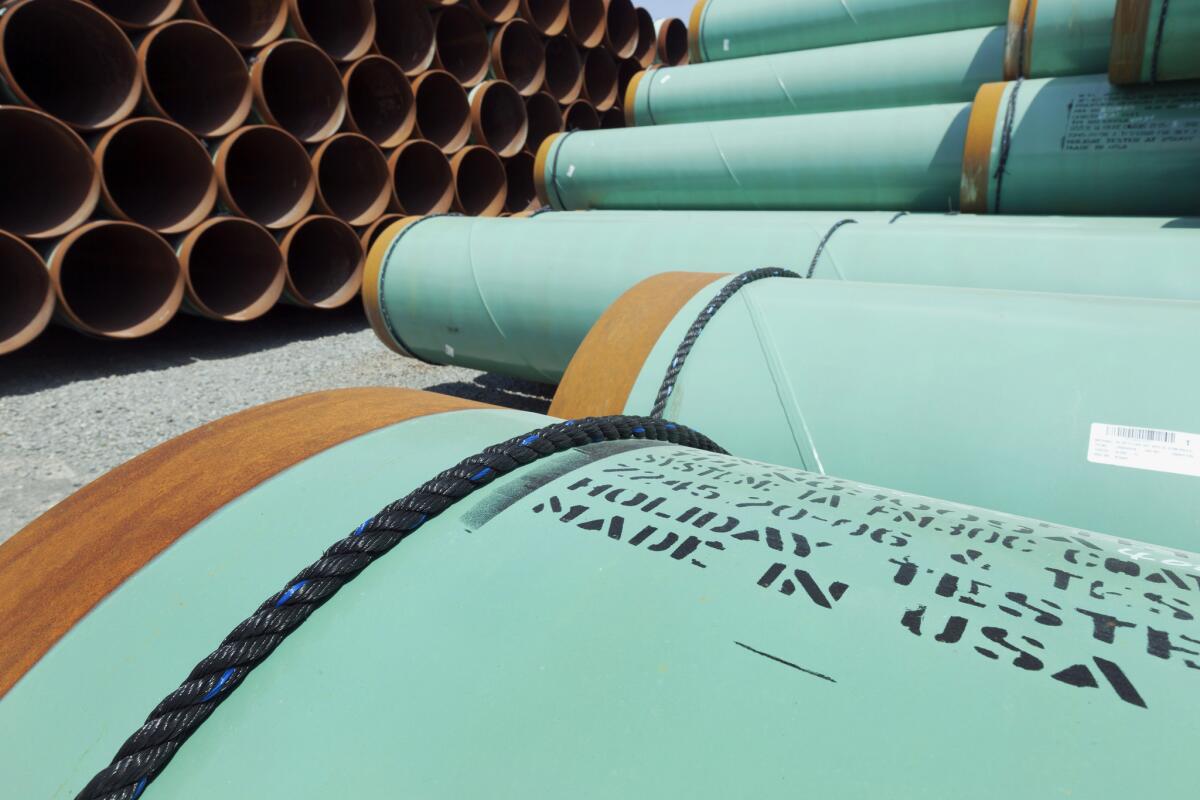Obama’s Keystone pipeline trap

On Good Friday, President Obama made a bad call. The State Department announced that it would delay its decision on the Keystone XL pipeline until after the Nebraska Supreme Court rules in a case involving the route. The administration insists the decision to punt has nothing to do with politics. Pretty much everyone else thinks otherwise.
Obama, who is rarely reluctant to act unilaterally when it benefits him politically, and who regularly brags about his red-tape cutting, is paralyzed by perhaps the only big shovel-ready jobs project he’s been presented with.
He welcomes the Keystone red tape because he’s trapped between an overwhelmingly popular initiative and an overwhelmingly powerful constituency within the Democratic Party opposed to it: obdurate rich environmentalists and the door-knocking minions they employ.
Obama’s predicament is just the latest example of how climate change monomania has become a problem for environmentalists — and the country.
The mark of a truly successful political constituency or lobby is clout in both parties. Since climate change started crowding out other concerns, the environmental movement at the national level has become little more than an adjunct of the left wing of the Democratic Party.
Conservation used to be a fairly bipartisan affair. Dubbed the “father of conservation” by the National Park Service, Republican Teddy Roosevelt did more than any other president to preserve large swaths of wilderness. Richard Nixon created the Environmental Protection Agency, expanded the Clean Air Act, signed the Marine Mammal Protection Act and proposed the Safe Drinking Water Act.
The relationship between environmentalists and Republicans soured under Ronald Reagan as he tried to pare back the excesses of the Carter and Nixon years. But the two sides truly broke up under George H.W. Bush. Actually, it was more like the GOP was dumped — unfairly.
Bush fought for renewal and expansion of the landmark Clean Air Act, but most environmental groups wouldn’t even attend the signing. He went to the Earth Summit in Rio in 1992, and he signed the U.N. treaty on climate change that established the Kyoto Protocol process.
“So how many environmental groups endorsed Bush for reelection in 1992?,” asked environmental analyst Steve Hayward in a 2010 Weekly Standard essay. “In round numbers: zero.”
As this story suggests, the friction predates the rise of climate change as a concern, but climate change has made these problems worse because it has coincided with and exacerbated environmentalism’s steady slide leftward. Greens already hated fossil fuels when scientists feared we were heading into a new Ice Age. But such hatred could be environmentally beneficial when it forced tougher safety standards on the industry. Now the hatred is categorical, even existential: All drilling is bad.
As the Keystone debacle shows, global warming hysteria provides an ideological rationale to be uncompromising and extreme. And Republicans don’t need to worry about pleasing environmentalists because they know there is no pleasing them.
Contrary to what you may have heard, GOP politicians still care about the environment, but they take their cues from public opinion, not from the green lobby. This often means that when the green lobby denounces Republicans (or centrist Democrats) for supporting drilling or fracking, the greens are at odds with the majority of Americans. How does it help their cause to be seen as fringe? Frustrated by their inability to sway public opinion, environmentalists become ever more shrill about the issue.
Important work is being done on serious problems, such as ocean acidification, overfishing, elephant and rhino poaching and loss of habitat. None of these issues get a fraction of the coverage they deserve. That’s because many environmental reporters think their beat begins and ends with climate change.
Of course, climate change activists think blame lies everywhere else, that the threat justifies just about any tactic. That’s their right. But that stance comes at a steep price, for them and everybody else. Just ask Obama.
jgoldberg@latimescolumnists.com
More to Read
A cure for the common opinion
Get thought-provoking perspectives with our weekly newsletter.
You may occasionally receive promotional content from the Los Angeles Times.











